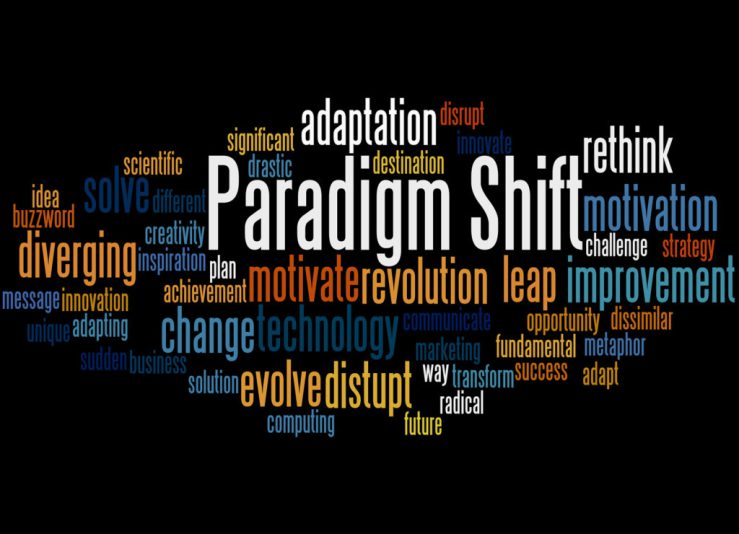In Charles Eisenstein’s Tedx talk, “A New Story of the People,” he explains our current transition of paradigm. He discusses how cultures answer fundamental life questions differently and how science answers some questions. However, the problem with science is that it creates a separation from an individual between others. He mentions how our economies are always in competition with one another because of the concept of separation. He explains that gift culture is based on the concept of “more for you is more for me.” By sharing your part with someone in need, you develop relationships that’ll benefit in the future.
Eisenstein explains that our defining mythology is developed from our science, religions, and economies. Our defining mythology has resulted in humans attempting to control nature. Our economy is based on exploitation and extraction of natural resources but we are beginning to understand that there is a limit and that we are reaching it.
Charles also talks about boredom and that it is related to “the self of interconnectedness.” He mentions that often small actions are perceived as ineffective; however, they are truly significant. He explains that part of the problem is that people expect a cause and effect relationship in the world. When in reality, things happen randomly. Random used to mean that not enough information has been acquired or that we don’t understand it but are aware that there is a reason for the following results. Currently it means “irreducibly indeterminacy.” He claims that science excludes anything that goes against its paradigm of separation.
He claims that because our defining mythology isn’t working and is falling apart that we are developing a new understanding of how the world works. He states that is not easy to convert others’ beliefs by force because you are separating yourself from those individuals. I feel that he is absolutely right; he explains that if we were in an individual’s situation, we’d most likely behave the same way. He explains that by thinking this way, we no longer believe that change derives from force. I believe he is saying that because we won’t use force, we begin to look at root causes. Eisenstein continues, saying that he wouldn’t have became the person he currently is without the small actions of others. These small actions are gifts that disrupted his narrative of separation. By continuing a story of interconnection we spark a transition of the control paradigm to one based on love and spirit. He speaks of empowerment and hopes of people working towards building a world that is greater than themselves. I can understand where his hope comes from. I feel that we all share that desire of a world our hearts feel is possible. As Eisenstein stated, it’s a matter of aligning our minds with our hearts to get to that destination.

In the first part of the documentary, “Guns, Germs and Steel,” based on Jared Diamonds book, explains why Diamond is critical of European dominance. Upon Diamond’s trip to New Guinea, an individual named Yalitt, asked the question, “Why do you white men have so much cargo, and we New Guineans have so little?” Diamond shares that he was taken aback by this question because he did not know how to answer it. This question inspired him to conduct research in search of a response. He describes the New Guineans as capable and smart and he questions why they didn’t develop great civilizations. He then takes a look at great civilizations such as Egypt and the Greeks and noted that they all had advanced technologies, large populations, and had organized work forces. He goes back 13,000 years in the Middle East, the time of hunter gatherers. The first human civilization came to be because of the discovery of grains and how to grow and store them. Basically, Diamond breaks it down to geography being the main factor as to why New Guineans didn’t develop modern technology. He explains that in the Middle East, they had access to grains and the right kind of animals for domestication and farming. In New Guinea, they didn’t have access to large, social, plant eating, terrestrial animals to aid in farming or the right kind of crops. Eurasia was the source of the best crops and animals. The same latitude of the Fertile Crescent meant the same length of day and similar climate and vegetation, which explains why the populations east and west of the Fertile Crescent had the geographical advantage to develop rapidly. These populations were able to yield surplus foods which resulted in developments in other fields such as architecture and technology. He explains that New Guineans have the ingenuity to develop modern technology; it’s just that their location required majority efforts in surviving their difficult environment and sustaining enough food, which often expires rapidly and is deficient in nutrients. This reminds me of what Eisenstein had said in his ted talk, about individuals’ situation impacting their behavior and how if we were in the same situation, we’d most likely behave the same way. No one is better than anyone else; all people are smart, unique, and innovative. It is all a matter of the resources we have access to.







